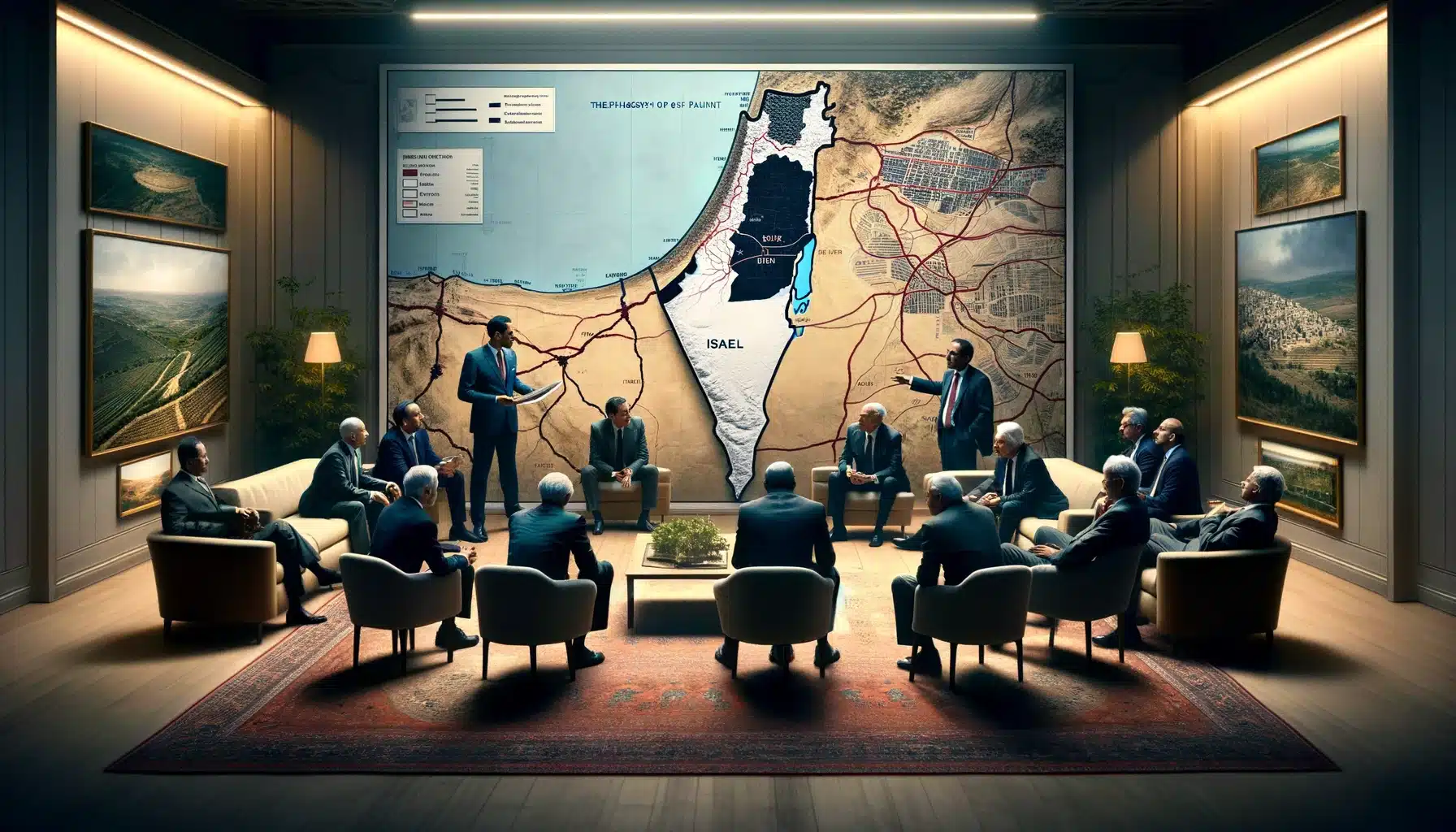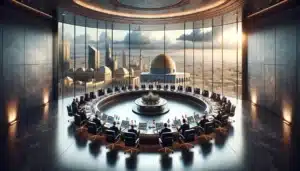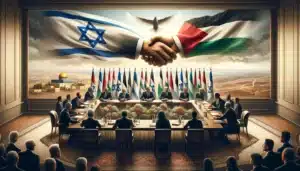The Israeli settlement expansion in the West Bank, a topic of enduring global concern, remains at the heart of geopolitical tensions in the Middle East. As of 2024, the expansion of these settlements continues to be a pivotal issue, underpinning the Israeli-Palestinian conflict and impacting regional stability.
Historical Context of Israeli Settlements
Israeli settlements, communities established by Israel on territories it occupied in the 1967 Six-Day War, including the West Bank, have been a contentious issue for decades. The international community largely views these settlements as illegal under international law, a view that Israel disputes, citing historical and security interests.
Current State of Israeli Settlements in 2024
As we navigate through 2024, the expansion of Israeli settlements in the West Bank has not only persisted but, in some areas, accelerated. This expansion is driven by a complex mix of political, ideological, and economic factors, which have emboldened settlement proponents and alarmed peace advocates and the international community alike.
Drivers of Israeli Settlement Expansion
The expansion of Israeli settlements in the West Bank is influenced by multifaceted drivers that intertwine political ambitions with economic and security considerations.
Political Factors Influencing Expansion
Politically, settlement expansion is buoyed by the support of certain Israeli government coalitions and their constituents, who view the West Bank as integral to Jewish heritage and sovereignty. This stance is further solidified by nationalist and religious ideologies that prioritize land settlement as a means to assert Israel’s claim over disputed territories.
Economic and Security Considerations
Economically, settlements are seen as opportunities for growth, attracting investments in housing and infrastructure. From a security perspective, some argue that controlling strategic areas in the West Bank is vital for Israel’s defense, a point that fuels further settlement development despite international condemnation.
Impact of Israeli Settlement Expansion
The consequences of Israeli settlement expansion in the West Bank ripple through various facets of the Israeli-Palestinian conflict, affecting communities, altering the landscape, and complicating peace efforts.
On Palestinian Communities
The expansion encroaches on Palestinian lands, leading to displacement, restricted access to resources, and economic hardships for Palestinian residents. These actions exacerbate tensions and contribute to cycles of violence and retribution.
On Israeli-Palestinian Relations
Settlement expansion is a significant roadblock to peace negotiations, undermining trust between the parties and diminishing hopes for a two-state solution. Each new settlement serves as a stark reminder of the deepening divisions and the challenges of reconciling territorial disputes.
International Response and Legal Perspectives
The international community’s response to settlement expansion has ranged from vocal criticism to resolutions condemning the actions. Legal perspectives, primarily referencing the Fourth Geneva Convention, underscore the illegality of transferring an occupying power’s population into the territories it occupies, framing the settlement enterprise as a breach of international law.
Key Areas of Israeli Settlement Expansion in the West Bank
In 2024, specific areas of the West Bank have become focal points for settlement growth, spotlighting the strategic and political calculations underpinning expansion efforts.
Major Settlement Blocks and Construction Projects
Settlements have expanded significantly around Jerusalem and in large blocs that Israel considers vital for its security. These areas have seen intensified construction activities, further entrenching Israeli presence.
Contested Areas and International Borders
Expansion in strategically sensitive areas near Palestinian population centers and along proposed borders of a future Palestinian state highlights the contentious nature of settlement policies. Such actions signal a hardening of positions on territorial concessions necessary for peace.
The Role of International Community and Diplomacy
In the intricate tapestry of international relations, the role of the global community and diplomacy in addressing Israeli settlement expansion cannot be overstated. This engagement reflects the broader efforts to balance national interests with the pursuit of peace and stability in the region.
United Nations and International Law
The United Nations has consistently played a pivotal role in addressing the issue of Israeli settlements. Through resolutions and statements from various bodies within the organization, the UN has underscored the conflict between settlement expansion and international law. Key points often highlighted include:
- The illegality of settlements under international law, particularly the Fourth Geneva Convention.
- Calls for the cessation of settlement expansion and the reversal of new construction.
US Policy on Settlements and Shifts in International Diplomacy
The United States’ stance on Israeli settlements has seen shifts over the years, reflecting broader geopolitical dynamics and domestic politics. As of 2024, the policy oscillates between endorsing a two-state solution and recognizing the complex realities on the ground. Critical aspects of US involvement include:
- Diplomatic efforts aimed at renewing peace negotiations.
- Balancing support for Israel’s security with advocating for Palestinian statehood.
Challenges to Resolving the Israeli Settlement Issue
Efforts to address the Israeli settlement issue face a myriad of challenges, from deeply entrenched political ideologies to practical considerations on the ground. These obstacles highlight the complexity of achieving a sustainable and equitable resolution.
Negotiation Impasses and Peace Process Stalemates
Attempts to restart peace talks are often hamstrung by the settlement issue, with each side holding seemingly irreconcilable positions. Key points of contention include:
- The status of Jerusalem.
- The right of return for Palestinian refugees.
- The delineation of future borders.
Internal Israeli Politics and Palestinian Authority’s Stance
The internal political landscapes of both Israel and the Palestinian territories significantly impact the settlement debate. Factors influencing these dynamics include:
- The influence of pro-settlement factions within the Israeli government.
- Palestinian Authority’s challenges in unifying Palestinian factions and public opinion.
Future Prospects for the West Bank and Israeli Settlements
Looking ahead to the future, the trajectory of Israeli settlement expansion and its impact on the West Bank remain uncertain. Several potential scenarios could unfold, each with its implications for peace and regional stability.
Potential Scenarios and Peace Initiatives
The range of possible outcomes includes everything from a breakthrough in peace negotiations to further entrenchment of the status quo. Key factors influencing these scenarios include:
- International pressure and incentives.
- Shifts in Israeli and Palestinian leadership.
Role of Grassroots Movements and Civil Society
Grassroots movements and civil society organizations play a crucial role in shaping the discourse around settlements and peace. Their activities often focus on:
- Promoting dialogue and understanding between Israelis and Palestinians.
- Advocating for policy changes at both the national and international levels.
Table: Overview of Israeli Settlement Expansion Impact
Aspect | Impact |
Community Displacement | Loss of homes and agricultural lands for Palestinian families |
Economic Hardships | Restricted access to water, mobility, and economic opportunities |
Security Tensions | Increased presence of Israeli military and checkpoints, leading to friction |
International Relations | Strained diplomatic ties between Israel and various countries due to settlement policies |
Peace Process Stalemates | Settlement expansion seen as a major obstacle to peace negotiations and a two-state solution |
In conclusion, the expansion of Israeli settlements in the West Bank in 2024 continues to be a central issue fueling tensions and complicating the path toward peace. The interplay of political, economic, and security considerations, coupled with the international community’s involvement and the challenges inherent in the negotiation process, underscores the complexity of resolving this longstanding conflict. As the situation evolves, the need for a nuanced, multifaceted approach to peacebuilding becomes ever more apparent.
Israeli settlement expansion in the West Bank in 2024 heightens tensions by displacing Palestinians, hindering peace efforts, and straining international relations due to perceived violations of international law.





